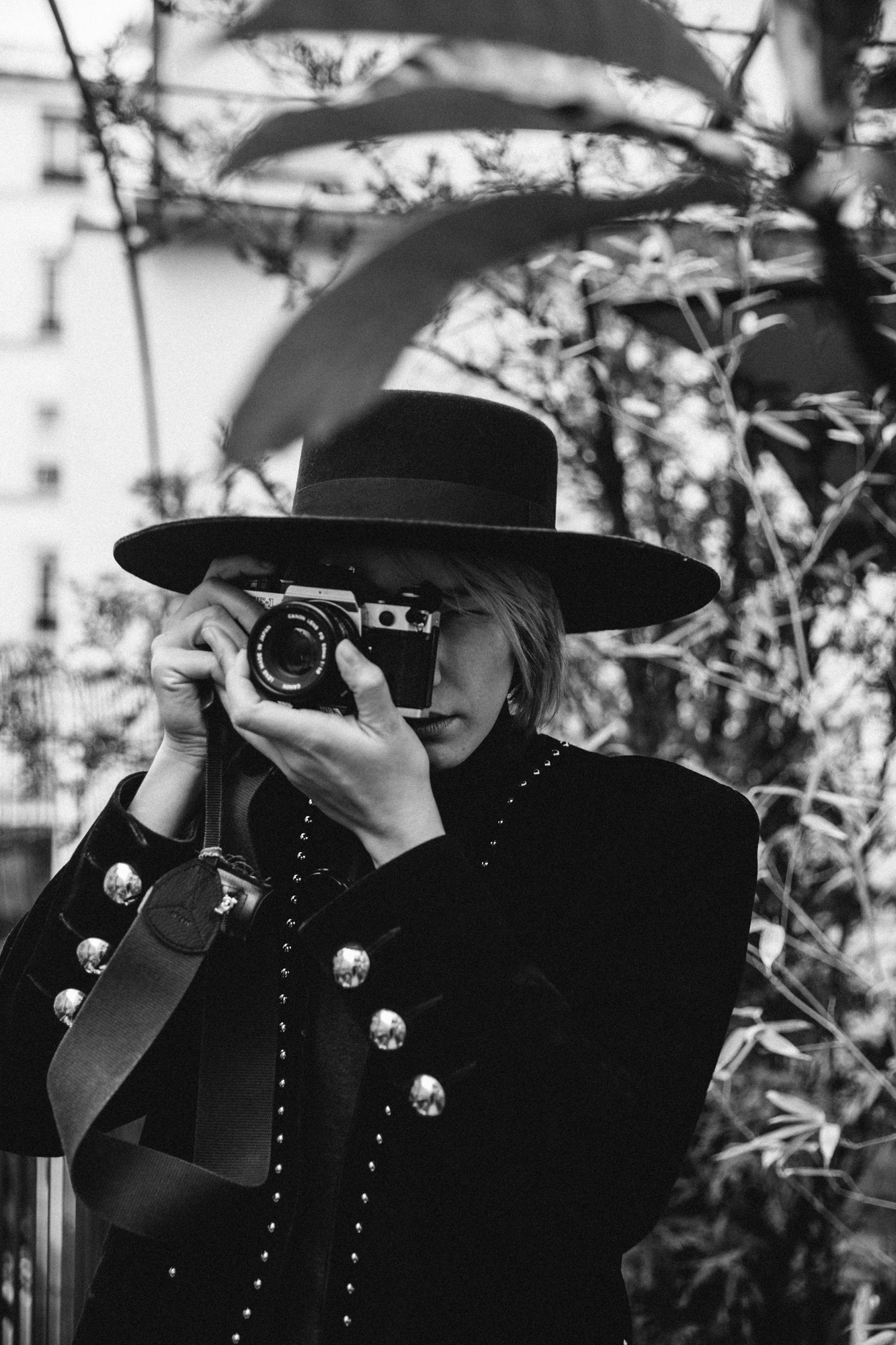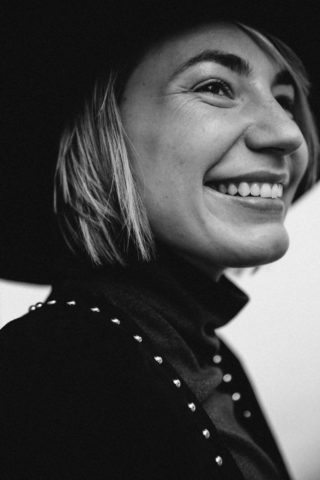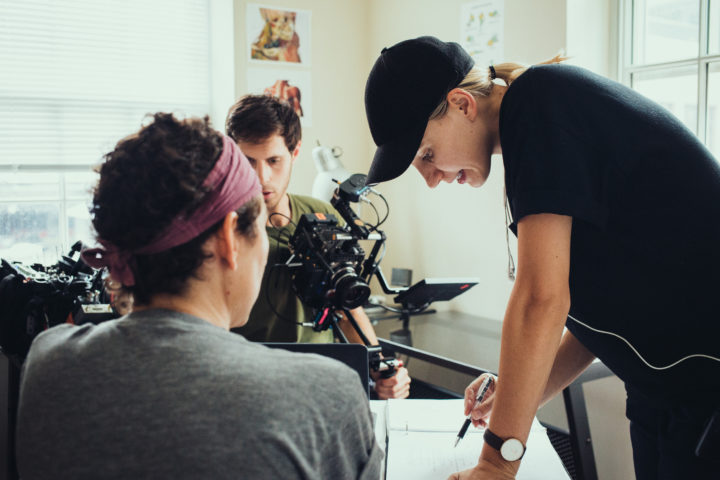This is the second in a five-part series showcasing the work of the panelists featured in GO’s virtual Pride event, “LGBTQ+ Representations in Film and TV.”
Jess Dunn is fine if you label her a queer filmmaker — just don’t lump her films, or any, into that category.
“My mission as a filmmaker is to share queer experiences undefined by sexuality and gender so that one day these stories aren’t categorized as queer entertainment,” she tells me. “Just films and TV about people.”
Dunn, the director of the psychological thriller webseries, “Gray Ground” and the romantic comedy webseries “@datingZoe,” which premiered on GO TV in 2018, has given plenty of thought to how films created by queer folx, and featuring queer casts and characters, are represented. Last month, she moderated GO’s virtual pride panel, “LGBTQ+ Representations in Film and TV,” which featured panelists Alina Carson, Robin Levy, Karyn Mercedeze Blanco, and Corey Rae. One on one, I had a chance to learn more about Dunn’s own views on representation, her upcoming projects, and how she plans to bring new voices and stories into the entertainment industry.
Dunn’s mission as a filmmaker exists in response to the tropes too often associated with queer characters. “They were really portrayed as either victims or villains,” she says of the earliest on-screen depictions. “Once the world moved out of that, it started moving toward coming out and the struggle.”
But “struggle” doesn’t define queerness or the stories that Dunn’s films tell. “The world I’m creating now, the people reflect the world I want to live in, so people aren’t fighting for their sexuality. Their differences aren’t the conflict; they aren’t the issue. It’s just part of who they are.”
With a production company and two film projects in the works, Dunn is in a good position to expand on the types of stories told by queer artists and filmmakers. This month, she launched Clouds at Night Pictures, New York City’s first woman-run production company which focuses on promoting LGBTQ+ voices. She’s also making the jump from short films to features with two new scripts, “Poetry of the Senses” and “Cultish,” both of which challenge the conventional queer narrative.
When asked what inspired these features, Dunn’s answer goes back to her first film, “Man in Progress.” The short, which premiered at the New York Short Film Festival in 2014, dealt with a breakup Dunn was going through and was “very much my voice, a big deal to me.” The one problem, to her regret: She made the protagonist a man instead of a queer woman.
“At the time, I was writing to fit myself into the tiny space available to me in my world full of hetero, cis examples,” she says. “It wasn’t until I landed in my queer community that I began to gain confidence in my experiences. Carving my own spaces led me closer to my truths. I’m still carving and still digging. I believe it’s a process and I’ll feel like I did my job if those spaces share the light with someone else.”
The result of her decision with “Man in Progress” is that her current projects reflect the stories of queer women. “Poetry of the Senses” tells the story of a woman who leaves her partner and the life she knows to explore a career as an artist in the south of France. It was inspired by Dunn’s own connection with the city of Paris, which she first visited with her girlfriend’s family in 2016. She returned for a solo two-week trip the following year; on a third, longer trip, she wrote “Poetry of the Senses.”
“I saved up, I applied for a few grants, and I basically created this three-month writer’s retreat for myself to write the script, to give myself the time and space to just live and breathe whatever my process might be, because I didn’t know it at the time. I’d just written shorts,” she says. “I didn’t really have a title. I didn’t even know what it would be about at the time; I just knew I needed to do this. And it was the best gift I’ve ever given myself — hands down the best decision I’ve ever made for my career — and that was really just following my gut and my instincts.”
She wrote her second feature, “Cultish,” during the Covid-19 shutdown. Dunn describes the film about the relationship between a wellness retreat worker and the retreat’s leader as a lesbian answer to the #MeToo movement. Although it explores a dynamic traditionally portrayed in the relationship between older men and younger women, Dunn says, “I think it’s important to show that this can happen to anyone in any walk of life. That just goes back to my mission of putting out more stories that inform the queer experience.” “Cultish” will be the first feature of Clouds at Night Pictures.
Like her films, Dunn’s career has defied traditional expectations. Although she put on plays and Dolce & Gabbana-inspired photoshoots with her cousins and sister when she was a kid, it wasn’t until college that Dunn realized her calling. “I took a film class, and a teacher put a camera in my hand and said, ‘Go make something,’ and it just clicked. And it was like, ‘Oh, this is what I’m supposed to do,’ and I never looked back.”
After college, Dunn initially considered going to film school in London, but her parents — “who didn’t know what to do with me,” she says — suggested that she go to L.A., where she had an aunt who worked in the film industry. Subsequent opportunities took her to Austin, India, and finally to New York, where she’s been for the past eight years — “the longest time I’ve ever lived in any place,” she says.
“@datingZoe,” which came out in 2018, was Dunn’s first paid directorial gig. It was followed by “Gray Ground,” which earned Winning Webisode at the Harlem International Film Festival in 2019. The series, which follows a protagonist who attempts to clear the woman he’s dating of murder, was “the first project that has allowed me to exercise my director’s vision,” she says. “Gray Ground” is the completed project of which Dunn is most proud (the full series is available on Seeka TV.)
Her directorial vision doesn’t just appear in the final product. On set, her role as director isn’t just to lead but to establish an environment where her cast and crew are both safe and respected. Having been on her fair share of sets, she’s noticed that not all directors are as energizing. “I’ve watched the way some directors talk to actors or actresses, and it’s like they’re fed up with them. They’re annoyed with them,” she tells me. “I’m like, how (A) Can you talk to anybody like that in real life? and (B) How do you expect to foster any type of environment for them where they can try things and perform and do well if that’s how you’re speaking to them?”
Her own style can be summed up along these lines quite simply: “Treat people well.” She’s taken acting classes to better understand her performers’ perspectives, and the experience has made her sensitive to just how vulnerable they often are on set. She sees her relationship with them as a dialogue where “We can both play off of each other and try new things.” For her crew, she expects them to work hard — the same as she expects from herself.
Alina Carson, with whom I spoke earlier this month and who worked with Dunn on both “@datingZoe” and “Gray Ground,” recalls her time on Dunn’s sets as a highlight of her own career. “There’s a humility that most directors don’t have,” she says. “She wants the best project possible, and she’s fine with everybody doing their job, however long it takes. It’s like, ‘How much time do you need? We can make that happen for you.’”
As for what changes Dunn would like to see in the industry, increasing accessibility is fundamental for reshaping whose stories are told. She applies this on her own sets by hiring diversity first. In addition to giving voice to LGBTQ+, Black, Indigenous, and POC artists and filmmakers, she believes it’s critical that such diversity is also reflected in the different departments on set.
To affect these changes, it’s necessary that those in power also represent that diversity, which brings us back to why Dunn doesn’t mind so much if she’s labeled a queer filmmaker. This might seem a little odd, given her mission is to remove the categorical label from entertainment media, but, given where we’re at culturally, it makes perfect sense. If being the queer filmmaker gets her to the table and a chance to affect positive change both onscreen and off: “Go ahead, I’m fine with it. Because once I’m there, I can do whatever I want.”





What Do You Think?